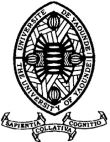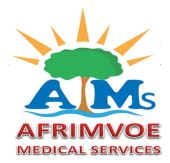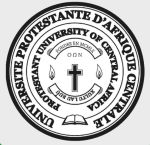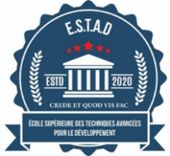Évaluation Qualitative de la Gestion des Déchets Biomédicaux dans une Clinique d’Entreprise de Pointe-Noire (Congo-Brazzaville)
DOI:
https://doi.org/10.5281/hra.v1i3%20Jul-Aug-Sep.4815Keywords:
Management, Biomedical waste, Infectious risk, Corporate clinic, CongoAbstract
RÉSUMÉ
Introduction. Les déchets biomédicaux (DBM) constituent un problème sanitaire et environnemental. L’objectif de cette étude était d’évaluer la qualité de gestion des DBM à Pointe-Noire. Matériel et Méthodes. Il s’est agi d’une étude descriptive transversale déroulée dans une clinique d’entreprise de Pointe-Noire au Congo-Brazzaville, de mai à juillet 2022, à l’aide de l’Outil d’évaluation Rapide-Individualisé (OER-I), basé sur le Rapid Assessment Tool (RAT) de l'OMS. Les acteurs ont été interviewés selon leurs rôles dans le processus de la gestion des déchets biomédicaux (GDBM). Résultats. Sept agents de la clinique ont été interrogés. Le score global OER-I obtenu était de 68 points sur 100 possibles. La clinique disposait d'une politique de GDBM, de ressources matérielles et financières suffisantes. Le mode de traitement des DBM était non polluant pour l'environnement. Aucun des agents interrogés n’était formé à la GDBM. Le niveau d'hygiène et de sécurité était coté à 3 sur 12, manifesté par le manque d'équipement de protection individuelle et le transport manuel des DBM des services vers le lieu de stockage central. Le temps moyen de stockage était supérieur aux 48 heures recommandées. La réduction de la capacité de traitement in situ des DBM à l'aide d'un banaliseur et l'inexistence de processus d'incinération respectant les normes environnementales étaient rapportés. Conclusion. La gestion des DBM était bonne dans cette clinique. Le processus nécessite d'être renforcé par la formation du personnel et l'équipement en matériel de traitement définitif des DBM.
ABSTRACT
Introduction. Biomedical waste (BMW) constitutes a health and environmental problem. The aim of this study was to evaluate the quality of biomedical waste management in Pointe-Noire. Materials and Methods. This was a descriptive cross-sectional study conducted in a corporate clinic in Pointe-Noire, Republic of the Congo, from May to July 2022, using the Individualized Rapid Assessment Tool (IRAT), based on the World Health Organization's Rapid Assessment Tool (RAT). The stakeholders were interviewed according to their roles in the biomedical waste management (BMW) process. Results. Seven clinic personnel were interviewed. The overall IRAT score obtained was 68 out of 100 possible points. The clinic had a BMW policy and sufficient material and financial resources. The BMW treatment method was environmentally non-polluting. None of the interviewed personnel were trained in BMW management. The level of hygiene and safety was rated at 3 out of 12 possible points, indicated by the lack of personal protective equipment and manual transportation of BMW from the departments to the central storage area. The average storage time exceeded the recommended 48 hours. Reduction in on-site BMW treatment capacity using a basic autoclave and the absence of incineration processes conforming to environmental standards were reported. Conclusion. The BMW management at this clinic was deemed satisfactory; however, the process needs improvement through staff training and the provision of adequate equipment for final BMW treatment.
Downloads
Published
How to Cite
Issue
Section
License
Authors who publish with this journal agree to the following terms:
- Authors retain copyright and grant the journal right of first publication with the work simultaneously licensed under a Creative Commons Attribution License CC BY-NC-ND 4.0 that allows others to share the work with an acknowledgement of the work's authorship and initial publication in this journal.
- Authors are able to enter into separate, additional contractual arrangements for the non-exclusive distribution of the journal's published version of the work (e.g., post it to an institutional repository or publish it in a book), with an acknowledgement of its initial publication in this journal.
- Authors are permitted and encouraged to post their work online (e.g., in institutional repositories or on their website) prior to and during the submission process, as it can lead to productive exchanges, as well as earlier and greater citation of published work










